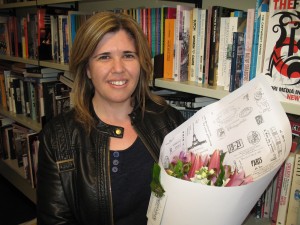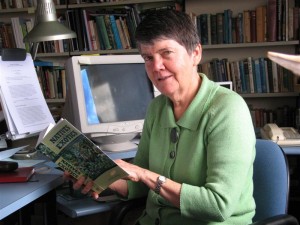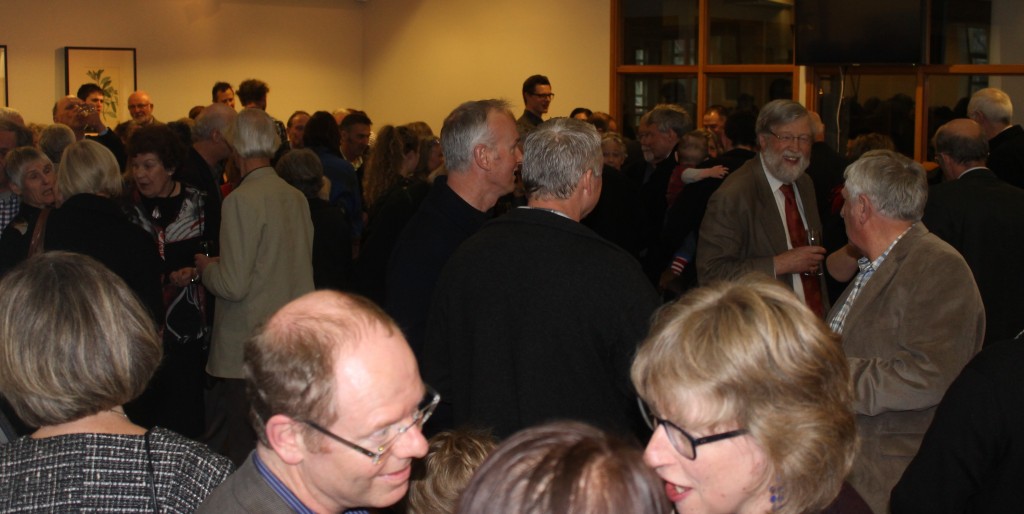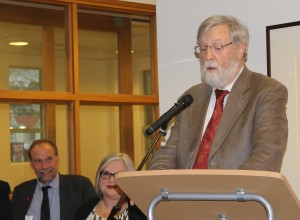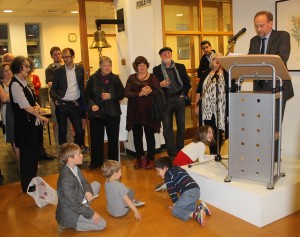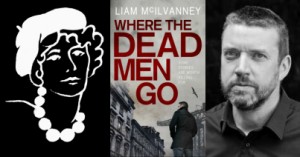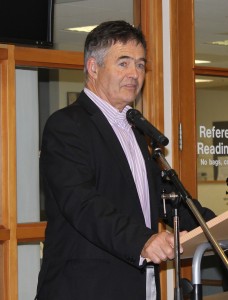New collaborations for Angela Wanhalla
Dr Angela Wanhalla, an active CROCC member, has been building on her success (two Marsden funded projects, a Rutherford Discovery Fellowship) with the success of an Australian Research Council Grant of just over $A500,000. Angela is a named international partner investigator on a Discovery Project headed by Profs. Lyndall Ryan, Amanda Nettleback, A/Profs Anna Johnston, Penelope Edmonds, and Victoria Haskins looking at violence and intimacy in settler societies across the Anglophone Pacific Rim, 1840-1940.
Marsden Success for Centre Member
Congratulations to CROCC member, Professor Judy Bennett, who was awarded $710,000 in the recent Marsden Fund round. Her research will explore ‘Constant coconuts: a history of a versatile commodity in the Pacific world’. Judy was also the lead investigator in the the Marsden Fund project ‘Mothers’ Darlings: children of indigenous women and World War Two American servicemen in New Zealand and South Pacific societies’ awarded in 2009.
‘Constant coconuts: a history of a versatile commodity in the Pacific world’.
Within the humid tropics, along the shorelines of atolls and high islands, the coconut palm flourishes, providing food, medicines, cosmetics, and household items for myriad Pacific societies. Yet no commodity history of the coconut exists. As a pathway to understanding globalisation, this research will analyse how from c.1840 onwards, products from the “nut” became commodities, how their production and consumption affected individual communities, power relations, mobility, culture, economies, and environment within the Pacific world and beyond. It will consider why, for most Island societies, the coconut became often the sole export staple, and the consequences of such dependency. A key focus is the fluctuating relationship between production and natural conditions, such as rainfall, as well as external challenges, such as declining markets, which tested indigenous agency. Recently, the coconut’s value as a source of biofuel and health and beauty products has significantly revived production. While the distant past is mainly recorded in archives, this network of producers, marketers, governments, and consumers is accessible to ethnographic methods, such as extended observation. The planned book will combine two perspectives: a) commodity chain analysis to trace economic and social linkages; b) ethnographic investigation. Archival and other documentary research will provide evidence for both.
Forthcoming Talks
The Centre is hosting an informal research seminar on ‘Revolutions and Empires in the South-West Indian Ocean, 1788-1810’ by Dr Sujit Sivasundaram (University of Cambridge), on Thursday 6 November, at 2pm, 2N8 (History Department Seminar Room) in the Arts Building.
CROCC is also sponsoring a public lecture by Professor A.G. Hopkins, (University of Cambridge) entitled, ‘Is Globalisation Yesterday’s News?’. This will be held on Monday, 10 November 2014 at 5:15pm in the Moot Court, Level 10, Richardson Building. Professor Hopkins is one of the leading economic historians of his generation and he has produced authoritative works on West African economic history (An Economic History of West Africa (1973)), the economics of British imperialism (the landmark two-volume British Imperialism co-authored with Peter Cain) and was one of the first historians to grapple with the analytical possibilities of globalisation (editing both Globalization in World History (2002) and Global History: Interactions between the Universal and the Local (2006)). Professor Hopkins has provided the following abstract, which suggests it should be an engaging lecture:
Globalization envelopes the world – and historians too. The ‘g’ word is now mandatory in titles of books and articles; Ph.D. students follow their leaders in dedicating their dissertations to the subject. Yet, not so long ago postmodern approaches to the past were equally compelling: if you could not tell your trope from your alterity and your Spivak from your Bhaba, your chances of landing a job were minimal. Wise investors buy at the bottom of the market and get out at the top. So, it is worth asking whether shares in globalization have further to run or whether full value is already in the market. One way of answering this question is by considering the reasons why historiographical phases, like empires, rise, flourish, and decline. This approach provides pointers to the current state of globalization studies and offers an estimate of the current value of the shares. The advice comes with a wealth warning: past performance has limited predictive power. As a famous trumpeter remarked when asked which way jazz was going: ‘man, if I knew which way jazz was going, I would be there already!’
Marsden Collection Online Soon
Two hundred years ago (in December) Rev Samuel Marsden gave the first Christian service on New Zealand soil at Oihi Bay, in the Bay of Islands, and planted the first group of missionaries before he sailed back to New South Wales. This early missionary activity generated considerable paper records between the missionaries, marsden, and the Church Missionary Society. These comprise the Marsden Papers at the Hocken Library, containing journals as well as hundred of letters. For over 20 years, Gordon Parsonson, a former member of Otago’s History Department – now aged 94, has been transcribing this hand-written material, some of which will soon go online.
Click here to see a recent Otago Daily Times article on Gordon Parsonson.
The digitization project has been led by the University Library and Hocken Library, with considerable input from the Centre for Research on Colonial Culture.
The Marsden project will go live in November, and will become a great resource for historians and other Humanities scholars.
CFP: Colonial Christian missions and their legacies, @University of Copenhagen
This may be of interest…
CALL FOR PAPERS: Colonial Christian missions and their legacies
An international conference to be held at the University of Copenhagen, 27-29 April 2015
Confirmed speakers: Laura Stevens (University of Tulsa), Julie Evans (University of Melbourne), Kirsten Thisted (University of Copenhagen), Alan Lester (University of Sussex), Rebekka Habermas, (University of Göttingen)
Over the past decade the entanglement of mission work and colonialism has become central to representations of Christian missions and their legacies. Indeed, discussions over the role and legacy of both Catholic and Protestant missions are currently taking place both in the global historiography on European missions, and in more localized discussions of missions in a diverse range of post-colonial, and not-yet-post-colonial contexts. Despite disagreement on the precise nature of missions’ legacy, most commentators seem to agree that in social, religious, linguistic and educational terms, histories of Christian missions still have a significant impact on post- and not-yet-post- colonial societies today. This conference aims to take a global look at these histories, their legacies and representations. How are colonial Christian missions remembered or memorialised in different contexts and spaces? How are they forgotten? What voice do indigenous people (Christian and non-Christian) have in these representations? And how can we, as academics, artists, museum directors and educators, move towards representing them in more multifaceted, nuanced, and thought-provoking ways? Any types of representations may be considered including historical, artistic, literary, musical, sculptural, filmic, and papers comparing two or more contexts, or taking a global or transnational approach, are welcomed.
Possible topics include, but are not limited to: the history and legacy of relationships between Christian missions and colonial states; the influence of different aspects of colonial rule (economic, social, intimate, etc), on the ways in which Christian mission was articulated; the legacy of Christian missions for past and continuing relationships between indigenous and non-indigenous Christians within social, cultural and religious institutions; the legacy of Christian missions’ constructions of gender; the legacy of Christian missions’ influence on language and translation practices; the influence of Christian missions on indigenous political or artistic expressions; continuities of ideas, discourses, or emotions associated with mission, from the colonial era until now; efforts to reclaim / rewrite / re-represent mission histories by indigenous or non-indigenous peoples and their reception; issues around dramatization or fictionalization in representations of mission histories; vested interests in the representation of Christian missions.
Please send an abstract of 300 words, along with a short biography (max. 200 words) and CV to Claire McLisky at cmclisky@hum.ku.dk by 31 October 2014.
Launch of “Richard Seddon: King of God’s Own”
Well over 100 people packed into the Hocken Collections foyer last night to help launch CROCC member Professor Tom Brooking’s latest book, Richard Seddon: King of God’s Own, giving a great indication of both Tom’s wide circles of friends and his reputation of one of New Zealand’s leading historians. As anyone who knows Tom would expect, there was a range of interesting wines and beers to help the celebration.Hocken Librarian, Sharon Dell, introduced the event, and was followed by Emeritus Professor Erik Olssen who formally launched the book. As Erik pointed out, there had not been a comprehensive biography since R.M. Burdon’s 1955 biography on New Zealand’s most successful Premier perhaps due to the the giant shadow that Seddon cast. Tom’s biography opens up considerable new perspectives and information on the man.
Tom Brooking then discussed the topic of his research, recounting Seddon’s many achievements and his ability to connect with Māori, with workers, and the general public. However he was also a man of his own times, and his imperialist jingoism and anti-Chinese sentiment would not meet with such popular acclaim today.
At 584 pages this is a substantial book, but also one destined to be a classic within New Zealand historiography.
Quick News: Overseas Invitations
Two of CROCC’s members are currently in Australia, having been invited to give presentations at universities there. CROCC Director is at the University of Brisbane, and gave a talk last night on “Colonial Knowledge Making” to the Centre for the History of European Discourses.
Angela Wanhalla will be presenting today on the Mothers Darlings Project, at the University of Melbourne, as part of the “Writing the Pacific: Re-writing Australia” symposium.
Liam McIlvanney wins Ngaio Marsh Award
Great news about CROCC member, Professor Liam McIlvanney.
Press Release by Craig Sisterson: craigsisterson@hotmail.com
An exceptional thriller entwined with national and workplace politics, sectarian warfare, and the changing face and influence of the newspaper industry has won University of Otago Professor of Scottish Studies Liam McIlvanney the prestigious Ngaio Marsh Award for Best Crime Novel.
Dunedin-based McIlvanney was announced as the winner, for his “fascinating, brilliant, and challenging” novel WHERE THE DEAD MEN GO, before a packed house at the conclusion of the lively Great New Zealand Crime Debate event at the WORD Christchurch Writers & Readers Festival on Saturday 30 August. “In a year where we had our strongest, deepest, and most diverse long list ever, and four truly fantastic finalists, WHERE THE DEAD MEN GO got the nod for its terrific, page-turning storytelling powered by superb prose, fascinating characters, and an evocative sense of place,” said Judging Convenor Craig Sisterson. “It’s the kind of book that lingers in your mind beyond the final page.”
In WHERE THE DEAD MEN GO, Glasgow stands on the precipice: of the Commonwealth Games, a national vote on Scottish independence, and an explosive rekindling of a brutal gangland war. Gerry Conway is a jaded, jobbing journo, the golden child fallen, clinging to the coat-tails of his former protégé, Martin Moir. When Moir’s body is discovered as a big story breaks, Conway steps into his shoes; a very dangerous place, as gangsters, politicians, and other predators swirl around.
The judging panel, consisting of crime fiction experts from New Zealand, Australia, and the United States, called WHERE THE DEAD MEN GO “a thought-provoking novel with very real characters and a fascinating, complex plot”. McIlvanney puts a lot into this book: the state of the news media, what it takes to be a good reporter, politics, family life, and even a New Zealand connection, said one judge. “Excellent writing makes it all fit together very nicely indeed.” Conway was described by the judges as “an unlikely hero perhaps, as the mainstream media around the world are going down the gurgler… he keeps digging away like a real reporter should, even when his bosses are less than supportive.”
The Ngaio Marsh Award for Best Crime Novel, established in 2010, is named for Dame Ngaio Marsh, who is renowned worldwide as one of the four Queens of Crime of the Golden Age of Detective Fiction. Dame Ngaio published 32 novels featuring Inspector Roderick Alleyn between 1934 and her death in 1982. With sales in the millions, and her books still in print to this day, Dame Ngaio is one of New Zealand’s most globally successful authors. Dame Ngaio’s closest living relative, John Dacres-Manning, gave his blessing for the New Zealand crime writing award to be named in her honour, saying that “I know that Dame Ngaio would be so proud… to know that her name is associated with the award”.
In addition to the award itself, McIlvanney, who is the son of famed Scottish novelist and poet William McIlvanney, wins a set of Dame Ngaio’s novels, courtesy of HarperCollins, and a cheque for $1,000 from the Christchurch Writers’ Festival Trust.
Working Lives Book Launch
A good crowd came to the Hocken Library for the launch of Erik Olssen’s new book, Working Lives c.1900: A Photographic Essay. Erik, an Emeritus Professor of the Department of History and Art History, is a particularly engaged member of the Centre. This book came out of his research for An Accidental Utopia?: Social Mobility & the Foundations of an Egalitarian Society, 1880–1940, a book he published with Clyde Griffen and Frank Jones in 2009, also with Otago University Press.
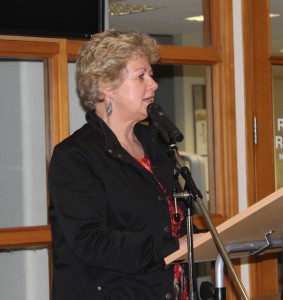
Rachel Scott, the Otago University Press Publisher addressed the crowd to begin the formal part of the evening
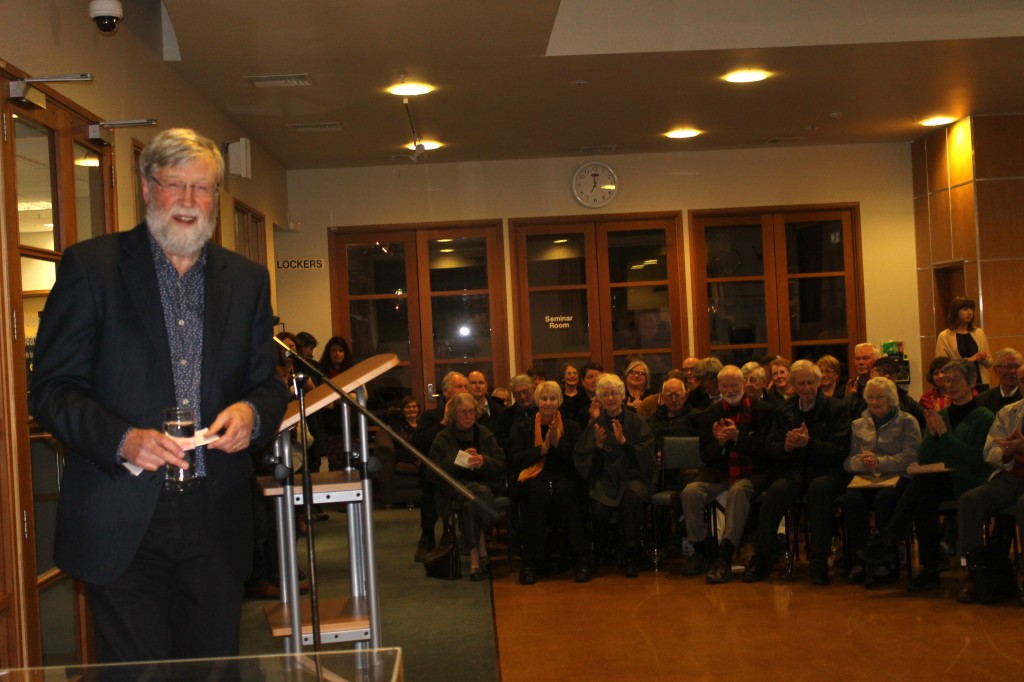
Erik gave an entertaining speech to those who came to the Hocken Library to help him launch his new book.
Erik encountered a lot of photographs that he was unable to include in An Accidental Utopia, and it was on the advice of the previous Otago University Press publisher, Wendy Harrex, that he went on to produce this wonderful volume.
Erik Olssen’s Working Lives, National Radio review
Gyles Beckford reviewed Erik Olssen’s Working Lives c. 1900 a photographic essay today on National Radio’s Nine to Noon programme with Kathryn Ryan. They described this as “a great book”. Emeritus Professor Erik Olssen is a treasured member of CROCC. Click here to listen to the review. (Length 4′ 44″.)

